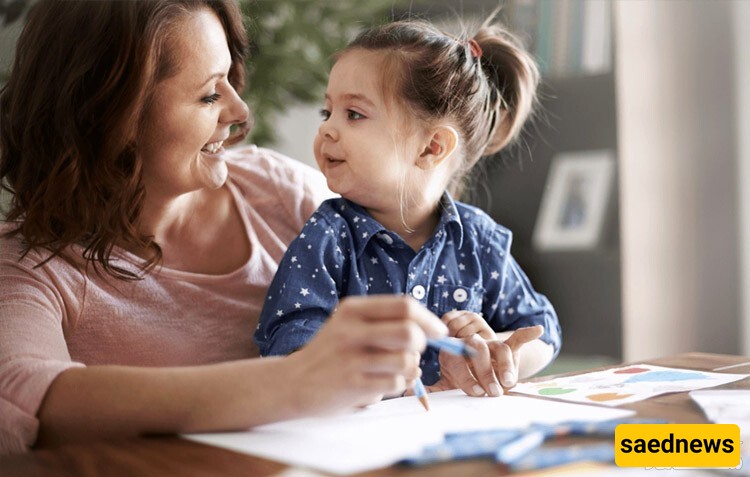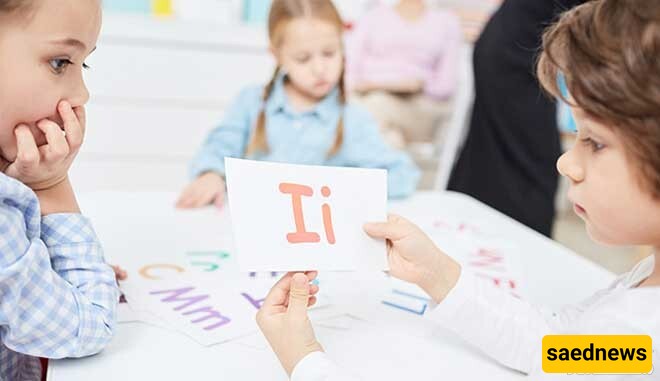The best age to learn English has been a major challenge for everyone. For the vast majority of language learners, the question arises: at what age should we start learning English from scratch? Stay with us as we explore the answer to this question.

The ideal age for children to learn English has always been a concern for parents. Everyone agrees that the earlier a child starts learning a language, the better. Some researchers say that the ability to acquire a second language peaks at the age of 6 or 7 or even before. However, the desire to learn a new language can be even stronger during adolescence. Nevertheless, as age increases, achieving native-like fluency in a second language becomes more difficult.

A recent study conducted by MIT in the United States suggests that there is a critical period in every person's life after which learning a new skill (such as acquiring a second language) becomes more challenging.
In this article, we provide all the essential information about teaching English to children so that you can make an informed decision.
In a specialized study to determine the best age for learning English, a sample of 670,000 individuals from various nationalities and age groups was examined. This study focused on English language acquisition, particularly grammatical skills.
Participants were given a grammar test, where they were also asked to provide information on when they started learning English and how long they had been studying it. Among them, about 246,000 people stated that they had grown up in an English-speaking environment.
The rest of the participants indicated that they were bilingual or multilingual. To increase accuracy in determining the best age for learning English, those whose native language was English were excluded from the study. The statistics showed that most participants were young adults between 20 and 30 years old, with the youngest participant being 10 years old and the oldest being 70.
Based on these findings, researchers concluded that the best age to start learning English is before the age of 10. However, those who began learning English in their teenage years also achieved good results. The study recommended that if you want to attain a level of proficiency similar to a native speaker, you should start learning a new language before the age of 18.
There was a time when teaching a second language to a 3-year-old seemed unimaginable to many. People found it hard to believe that a child at that age, who was still mastering their native language, could learn another language. Parents who started this process were often viewed as unusual.

However, recent research suggests a completely different perspective. The innate ability to learn during the first three to four years of life makes acquiring a second language much easier. Studies at Harvard University confirm that learning a second language at an early age significantly enhances creativity, critical thinking skills, and mental flexibility.
Researchers believe that the first three years of life are a critical period in a child's development, during which the foundations of attitude, thinking, and learning are established. This means that children naturally have the ability to learn at this stage.
Studies indicate that 50% of our learning ability develops by the age of 4, and another 30% by the age of 8. This is why it is recommended to encourage 3-year-olds to start learning a second language.
Research shows that children who start learning a second language before the age of 10 not only achieve higher proficiency but also develop greater social intelligence. In other words, they build better social relationships with others, which improves their overall academic performance.
One interesting finding from studies on the best age for learning English is that individuals who learn a second language (such as English) before adolescence tend to develop better pronunciation. Their pronunciation is closer to that of native speakers.
For this reason, many experts consider the best age for learning English to be around 10 years old. This is because children's brains are still developing in their native language, and their cognitive abilities are still maturing. Importantly, learning English in childhood does not interfere with mastering the native language.

A study involving 17,000 English-speaking children learning French found that those who started learning at age 11 performed better in tests than those who started around age 8. One reason for this is that older children take learning more seriously and are more motivated.
Additionally, it has been observed that teenagers who learn a second language before the age of 15 find it easier to become fluent and can speak like a native.
On the other hand, adolescents over 15 and adults generally have a harder time learning a new language compared to younger learners. This is because children do not have the same cognitive and experiential limitations as adults, making language acquisition easier.
Although learning a new language at a native level may not be possible after the age of 18, it is still possible to acquire the skill at a high speed.
One MIT researcher specializing in brain and cognitive sciences stated:
"It is difficult to determine whether this is a biological issue or a cultural/social one. In European and American societies, people usually leave home and take on full-time jobs or pursue specialized careers after the age of 17 or 18. All these factors can influence the learning process."
While learning a new language can be more challenging for adults, it is not impossible. Research suggests that the best age to start learning a language—such as English—is before the age of 10. Parents need expert guidance and support because teaching a language to children is fundamentally different from teaching adults and requires specific methods.
Children who learn two languages often mix words from one language with another. This is known as "code-switching" or "code-mixing." However, this is not a cause for concern, as all bilingual individuals experience this phenomenon.
Some theories discourage code-switching, claiming it hinders language development. However, experts believe that bilinguals, regardless of age, occasionally mix languages, which does not indicate language impairment or confusion.
Children who start learning a second language at an early age usually develop a better understanding of when to use each language by the time they turn four. Parents can expect them to expand their vocabulary in both languages and work towards maintaining conversations in a single language rather than switching between them.
There is no universal rule that applies to all children. It cannot be said that every child must start learning a second language at ages 3 or 4. The learning environment and conditions also play a crucial role.
For instance, if a child does not start learning a second language at ages 3 or 4, it is recommended that they begin at ages 6 or 7 when they start reading and writing. In such cases, attending language classes two to three times a week or having language lessons at home with a tutor is advisable.
However, if language exposure is limited to once a week, it may be better to delay language learning until age 12. Research suggests that at this age, children have a better cognitive understanding of the world, allowing them to retain and apply language skills more effectively, even with limited exposure.
Although research on the best age for learning a language remains inconclusive, parents should give their children the opportunity to learn a second language whenever they are ready.
As a parent, you are the best judge of your child's learning efforts and progress. You can determine the most suitable time for them to start learning English.
We hope this article has helped you develop a more realistic vision for your child's future.

